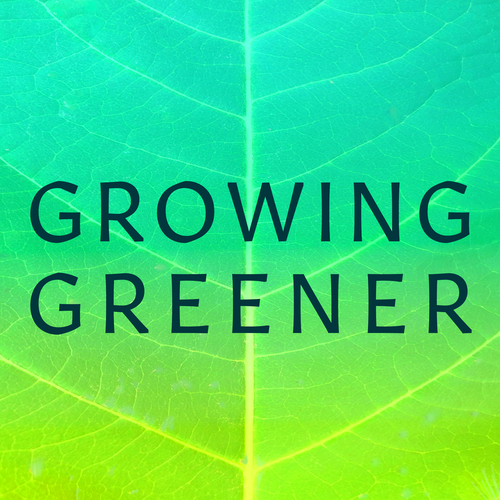His participation in a Bioblitz introduced Brian Stewart to the fascination of the local insect life. A dozen years later he had photographed some 400 species in his own back yard, including many strange and beautiful creatures. Brian shares his story and tips for insect identification in this program first broadcast in November of 2019
Izel Native Plants, Expanding the Palette and Knowledge-Base of American Gardeners
If you are frustrated by the poor selection of native plants at local garden centers, check out Izel Native Plants. Listen as founders and owners Amanda McLean and Claudio Vasquez explain how they have made the wares of leading wholesale growers accessible to amateur gardeners, and how their company emphasizes education as much as sales.
A Youth Uprising in Montana
Back to the New Basics
Gardening is changing, and our understanding of the field must keep pace. Veteran horticulturist and longtime teacher Joe Seals rises to this challenge in his new book, "Back to the New Basics: A Practical Guide and New Reference Manual to the Ways, the Whys, and the New Sciences of Better, Easier Gardening." A great introduction for the novice and a quick update for experienced gardeners, this is an invaluable book.
A Sherlock Holmes of the Forest
Grassland Gardens for Our Era
As our climates grow warmer and frequently drier, gardeners need the drought and heat tolerance, and innate sustainability of our native grassland plants more than ever. In their new book, The Gardener’s Guide to Prairie Plants, Neil Diboll and Hilary Cox have combined their decades of experience to produce an indispensable tool for beginners and veterans alike, with invaluable advice about how to create functioning grassland ecosystems inside and outside the prairie states.
Making Our Vegetable Gardens More Climate Resilient
“Grow Your Own” is a cornerstone of sustainability, but our vegetable gardens are being challenged by increasingly erratic weather as the climate changes. John Traunfeld, Program Director at the University of Maryland’s Home & Garden Information Center shares his experiences in making food gardens more climate resilient, and how this can even draw our communities closer together.
Gardening on a Lead-Contaminated Soil
Sculpting Sunlight
Beautiful and Field Tested Native Lawns
A Critical Look at Permaculture
More about Mulch
Will the “volcano mulch” the landscaper piled around the bases of your trees kill them? And is a mulch made of ground-up shipping pallets really beneficial for your plants? You may be surprised by the science-based insights about common organic mulches that Dr. Linda Chalker-Scott of Washington State University shares in the most recent “Growing Greener.”
Plant a Living Mulch
Guaranteeing Your Right to a Healthy Environment
An Introduction to Veganic Gardening
John Walker, a horticulturist who trained at the Royal Botanic Gardens Kew and a multi award winning environmental writer, shares advice on Veganic Gardening, an approach that combines organic practices with plant-based nurturing of the soil with resources found or grown on-site for maximum sustainability.
Shopping for Topsoil
A Rift in the Native Plant World
“Gardeners are the worst threat to native plants.” Hostility toward horticulturists is common within the ecological restoration community. But, John Gedraitis of Van Berkum Nursery says, it’s an impediment to growers such as him who want to expand the availability of local ecotype plants, genetically adapted natives grown from locally collected wild seed.
“Plant Babies” vs. Science in the Garden
Beyond Bold
Landscape architects Wolfgang Oehme and James van Sweden electrified the gardening world in 1975 when they introduced a new horticultural richness and a concern for sustainability with their “New American Garden Style.” Eric Groft, current CEO of Oehme, van Sweden discusses the firm’s new book, “Beyond Bold,” describing how the successor generation has remained true to that legacy while pursuing new avenues of environmental sensitivity.
Finding New Allies in the Campaign to Save Our Ecosystems
Dr. Douglas Tallamy, the University of Delaware entomologist who has been awakening homeowners to the need to plant natives and join our plots together in a giant “homegrown national park,” has found a new audience. He has just released a young readers’ edition of his best-selling book, “Nature’s Best Hope.” Learn how you can enlist your children in the campaign to save our ecosystems.

